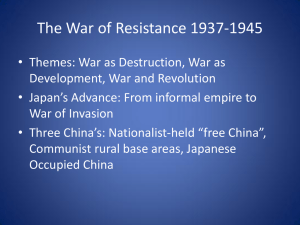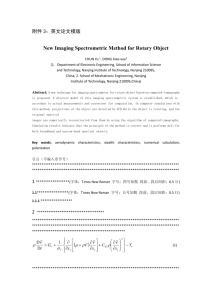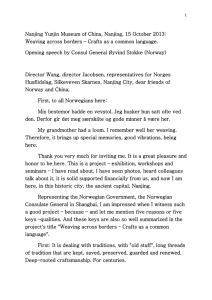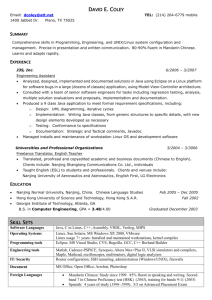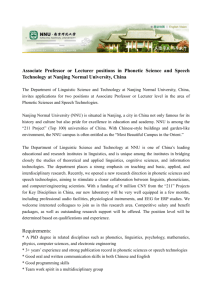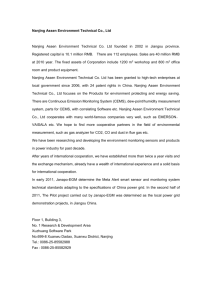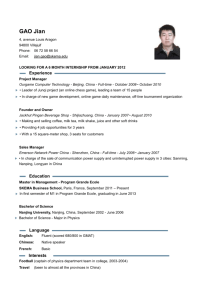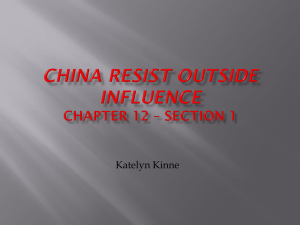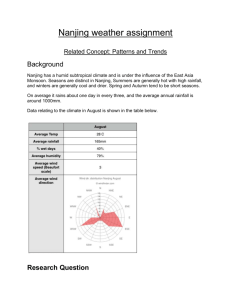Abstract / Full Paper - Centre for China Urban and Regional Studies
advertisement
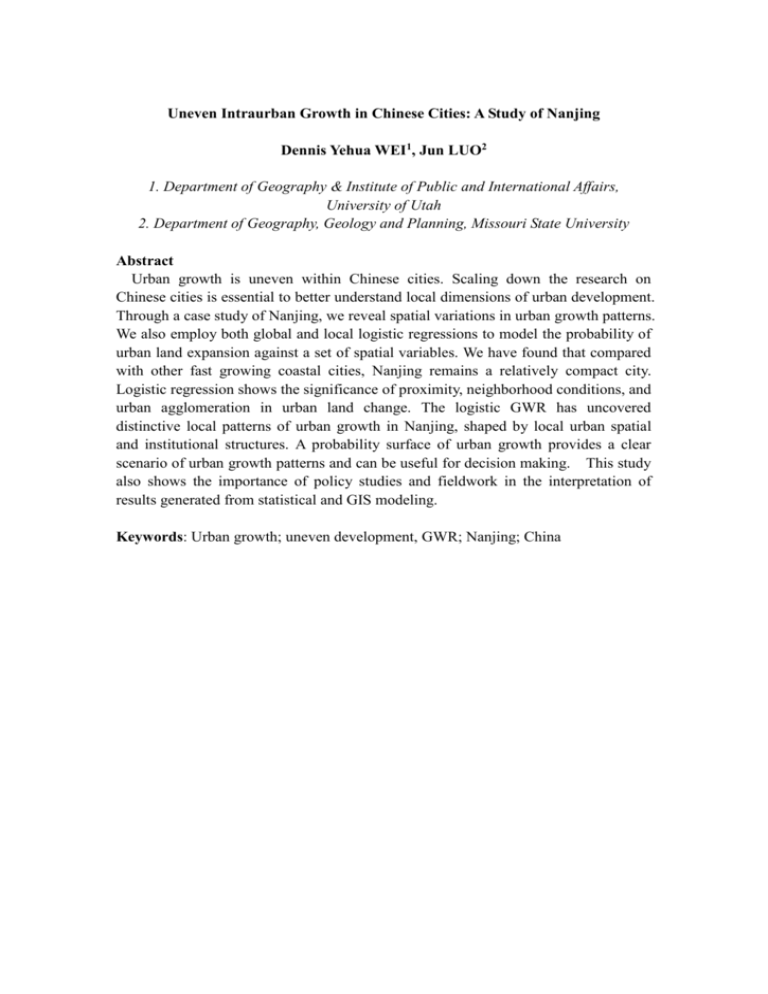
Uneven Intraurban Growth in Chinese Cities: A Study of Nanjing Dennis Yehua WEI1, Jun LUO2 1. Department of Geography & Institute of Public and International Affairs, University of Utah 2. Department of Geography, Geology and Planning, Missouri State University Abstract Urban growth is uneven within Chinese cities. Scaling down the research on Chinese cities is essential to better understand local dimensions of urban development. Through a case study of Nanjing, we reveal spatial variations in urban growth patterns. We also employ both global and local logistic regressions to model the probability of urban land expansion against a set of spatial variables. We have found that compared with other fast growing coastal cities, Nanjing remains a relatively compact city. Logistic regression shows the significance of proximity, neighborhood conditions, and urban agglomeration in urban land change. The logistic GWR has uncovered distinctive local patterns of urban growth in Nanjing, shaped by local urban spatial and institutional structures. A probability surface of urban growth provides a clear scenario of urban growth patterns and can be useful for decision making. This study also shows the importance of policy studies and fieldwork in the interpretation of results generated from statistical and GIS modeling. Keywords: Urban growth; uneven development, GWR; Nanjing; China
